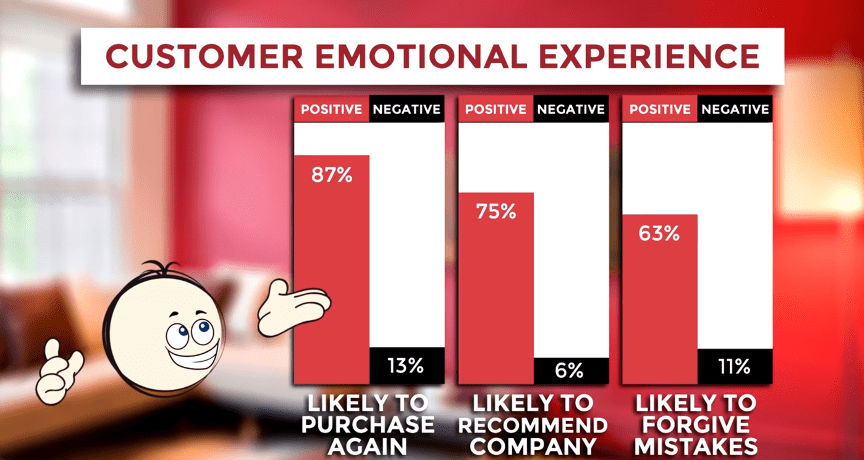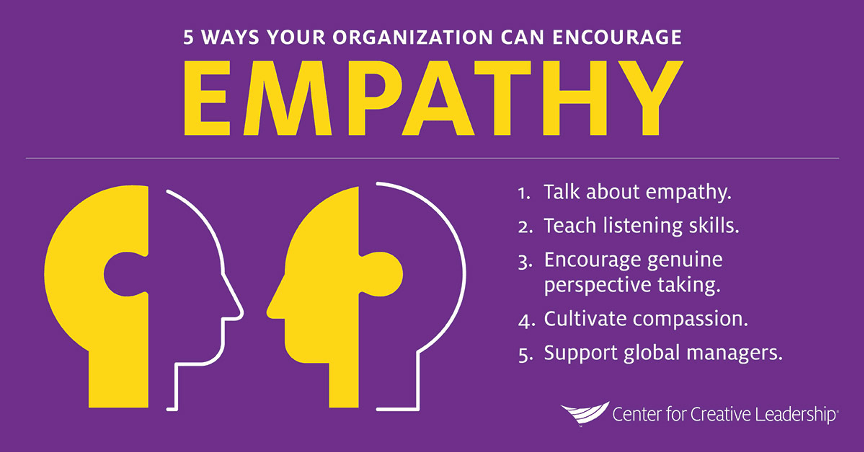Does this sound familiar?
You invest a lot of money in team training, establish best practices, reiterate them to your contact center agents over and over again, and… nothing happens.
Sure, you see temporary improvements, but making sure they last is a whole other story. It can feel frustrating, but you’re not alone. Many contact center leaders face the same challenge.
The good news? Providing empathetic coaching tends to close skill gaps in a positive way, which empowers agents to provide a better customer experience.
The Secret Strategy of Successful Contact Centers: Empathetic Coaching
Coaching is an ongoing, action-oriented practice that focuses on employees’ “own resources to help them to see and test alternative ways… to improve their performance or enhance their personal development or both,” according to the International Coaching Federation (ICF).
But behavior change isn’t easy, even in the best of circumstances. When it’s being requested by a likely-temporary job, where employees might feel they are easily replaceable – a common feeling in contact centers – being willing to change becomes even more challenging.
Therefore, empathy in coaching is especially essential for contact centers who want agents to make a sustained effort to hone and improve their skills. Simultaneously, there needs to be a deeper benefit for agents than earning a paycheck.
When the focus shifts to developing agents’ skills and setting them up for success in their careers, there’s a greater motivation for them to make the effort. When the empathetic coaching allows them to come up with their own solutions, make mistakes and learn as they go, the magic starts happening, and the customer experience improves.
Why Investing in Your Agents is Profitable Despite High Turnover Rates
Many contact centers are hesitant to invest in engaging agents because of the high turnover rates they experience. “According to a study conducted by Cornell University, average turnover among 50,000 call centers was 33%,” reports LOMA, and replacing each agent comes with a 4-5 figure cost.
But investing in agents, and making them feel that the time they spend in your company is valuable for their own development, could reduce turnover. According to McKinsey, engaged agents are 8.5x more likely to stay for at least a year, and 16x more likely to refer friends to come work for you too, reducing recruitment costs.
Plus, no matter how long they stay, agents who are treated well will treat your customers well while they’re at your company.
That, in turn, translates into customer retention. “96% of our [survey] respondents say customer service plays a role in their choice and loyalty to a brand,” reports Microsoft.
That loyalty then directly translates into profits, according to a 1990 study by Harvard Business School and Bain & Company that still gets quoted often. “In industry after industry… when the cost of serving loyal customers falls and the volume of their purchases rises… relationships generate big returns. The bottom line: increasing customer retention rates by 5% increases profits by 25% to 95%,” reports Harvard Business School.
To reach numbers like that, agents must be in a state of mind to provide positive emotional experiences. The first step to that is empathy.

How to Provide Empathetic Coaching that Drives Business Results
You probably know that your employees can’t be forced into providing empathetic customer service. They need to feel empathy from management in order to carry that empathy forward to customers.
Here’s how to coach agents in an empathetic way that positions them as empowered, willing partners in change.
Identify Skill Gaps and Choose the Most Impactful Behavior Change
When we strategize work plans, we often want to aim for the stars. Yet while ambitious goals are beneficial in the long run, James Clear, author of the New York Times bestseller Atomic Habits has found that the best way to create long-lasting change is to take it one step at a time.
On his blog, Clear covers studies that found you’re 2-3x more likely to implement a new habit if you create an implementation statement for it. For example, “During the next week, I’ll review the active listening course materials for 15 minutes at the beginning of each shift.”
Clear points out it’s common to want to fall back to familiar behaviors. But by making only one new habit their focus, your agents are more likely to stick to it for the month or three it takes to move the habit into their comfort zone, to the point where it’s pretty much automatic.
Then, you can start implementing another change.
To choose the habit or behavior you want to change, analyze your organization’s performance gaps. What’s one insight that, if implemented, could drive the biggest change in performance?
You could focus all your coaching attention on this one big goal.
However, if your agents aren’t used to getting coached, consider starting small. Start with an easy change that will give them a quick win. This will help them trust the process, making it easier for them to collaborate as you gradually increase the difficulty level.
Explain How Coaching Will Help Them
“Before you begin, get clear on why the change matters. Make it a values-based choice,” writes psychology professor Steven C. Hayes in Psychology Today.
Find out what your agents’ values or career goals are, so you can link rewards for performance imporvement to their desires.
For example, if you have many Gen Z employees (born in 1995 or later), a Sparks & Honey research says 60% of them want their jobs to make the world a better place. You could link departmental goals with a paid day off for volunteering. Or you could let salespeople vote on the charity that will get a percentage of the profits they generate (without hurting their commission).
Alternatively, you could provide access to other departments. For example, a customer service agent looking to get into a business-oriented career could see what work is really like in business development or a customer success role.
That said, it’s important to clarify the business goals of the behavior change you seek to create, and how the agents’ work will directly impact the company’s success.
You can tie the two together by sharing customer case studies. Seeing how the company makes a real difference in people’s or companies’ lives could help your agents feel like their work makes a difference, too.
Practice Empathy with Agents
If you see an agent reacting badly to a customer, consider finding out what happened on the call before you make any judgment. Contact center agents often deal with yelling, humiliation, racism, and sexism from customers, alongside pressure from management to increase activity rates.
Make sure they feel heard and that they know management has their backs, and they’ll be more open to implementing your coaching.

Let Your Agents Come Up with the Answers
When working on closing a skill gap or changing agent behavior, let agents come up with the answers first.
Ask open-ended questions, like how they could do things differently next time. Be OK with agents coming up with different answers than you would have. Give agents credit for coming up with these answers.
That said, it’s OK to offer a solution if they don’t know. Remember they’re still in the learning process.
Give Agents a Safe Space to Practice and Ask for Help
Like anyone who’s learning a new skill, your agents will make mistakes. As part of building trust, consider letting go of punishment when you see agents make an effort. Instead, focus on building open communication, where it’s OK to try, make mistakes, admit these mistakes, and ask for help.
In fact, according to Harvard Business Review, “Michael Alter, former president at Sure Payroll, made making and acknowledging mistakes a core to operationalizing their business strategy… He created the ‘Best New Mistakes’ competition, rewarding employees for providing the most unique and interesting mistakes.”
This wasn’t an opportunity for team members to shame colleagues. “Rules included that employees could only nominate themselves,” reports Harvard Business Review.
Consider creating a call library, where agents can share experiences that went so wrong, you can’t help but laugh. Like Alter, tell them they can only include their own mistakes, and that they don’t have to include their names.
Either way, give your agents credit for being willing to admit their mistakes, especially when they ask for help so that they know you’re here to help them thrive.
Get Feedback from Your Agents About Your Coaching Process
Ask your agents to tell you what works for them and what’s stopping them from changing behaviors, alongside issues they’d like addressed in coaching.
Keep an open door for them to come to you with feedback, but also run anonymous surveys to help agents express their needs more freely.
Successful Contact Center Coaching is an Ongoing Process
Once you’ve mastered the process, rinse and repeat.
According to Gallup, “only one in five employees strongly agree that they have talked to their manager in the past six months about steps to reach their goals.” Don’t let it happen to you, especially since Gallup reports that employees that do have these conversations are 3.5x more likely to be engaged in their work.
Therefore, continue evolving the process as you learn what works for your agents.
Leave plenty of time for practice and skill acquisition on a regular basis, and monitor the implementation process. Have your agents’ back on a regular basis instead of waiting for the next quarter’s report.
As a result, they’ll make a bigger effort to help your company increase its reach, revenue, and impact on your customers.


